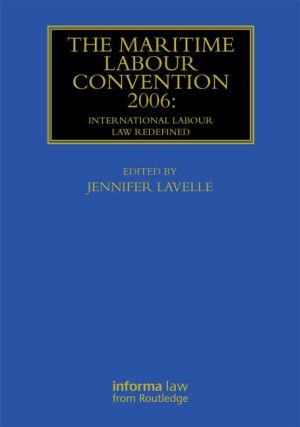
With the Maritime Labour Convention’s entry into force in August 2013, the shipping industry will soon be faced with a new international convention that has comprehensive implications across all sectors. This vital text provides timely analysis and thought-provoking essays regarding the Convention’s application and enforcement in practice.
Hailed as the "Seafarer’s Bill of Rights" and the "fourth pillar" of the international regulatory regime for quality shipping, the Maritime Labour Convention is set to significantly alter the playing field for key stakeholders. This book offers diverse and interesting commentary in respect of the Convention’s impact on core sectors of the shipping industry, identifying both strengths and weaknesses of the Convention, as well as potential hurdles that will need to be overcome.
Each chapter focuses on a different aspect of the Convention, ranging from individual rights of the seafarer to challenges of flag State implementation. Special attention is given to enforcement through examination of the innovative measures provided in the Convention itself, along with discussion of domestic enforcement mechanisms in certain States. Furthermore, the book evaluates whether the Convention has filled existing gaps in maritime labour law, resolved prior difficulties or created new problems.
This book expertly addresses issues of fundamental importance to national authorities, shipping professionals and associations, maritime lawyers and academics worldwide.